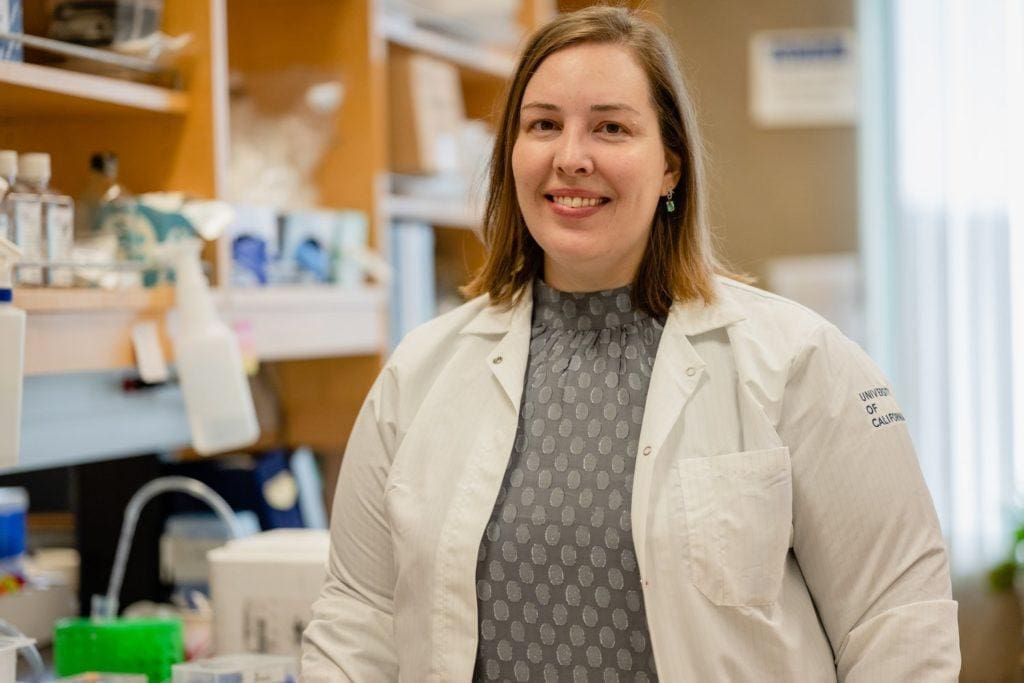A California finalist for the 2021 Michelson Philanthropies & Science Prize for Immunology, Dr. Wagar’s research focuses on translational human immunology and the use of organoids to understand the complex interactions between immune cells upon vaccination and infection in humans.

Dr. Lisa Wagar, assistant professor at UC Irvine, where she started her lab in 2020 in the Department of Physiology and Biophysics.
By Justin Chapman
Researching Immune Responses to Viruses and Vaccines
Dr. Wagar’s research focuses on translational human immunology and the use of organoids to understand the complex interactions that occur between immune cells upon vaccination and infection in humans. For the Michelson Prize, she wrote about deciphering immune responses to viruses and vaccines using human tonsil organoids.
“I have studied the adaptive immune response of people under different contexts, so that includes pediatric immunology, immune responses in the aged, and trying to better understand what human host-specific factors contribute to differences in immune responses to things like infectious diseases and vaccines,” she said.
Originally from Canada, Dr. Wagar did her Ph.D. at the University of Toronto and has long been interested in human immunology. She is an assistant professor at UC Irvine, where she started her lab in 2020 in the Department of Physiology and Biophysics.
Dr. Wagar examines what kinds of factors on the host side, such as infection experience and cell composition, regulate the quality and the magnitude of the immune response as they develop in response to a vaccine or an infection.
“One of the main issues that we deal with when we want to do human immunology is that getting access to samples is really difficult,” she said. “You’re basically limited to looking at vaccine responses from peripheral blood samples. Even then, that’s difficult to do, because you have to set up a specific study or clinical trial to do it.
“One of the goals of my postdoc work was to develop an in vitro model that helps us, to some degree, not be so reliant on mouse models. For that, we use what we call immune organoids, or tonsil organoids. We can make in vitro cultures from primary lymphoid tissues, like tonsils. And then we can try all kinds of different vaccines and immune modulatory factors, and test stimulating factors in the same person, across hundreds of different conditions.”
She said this idea allows researchers to do the kinds of experiments that they would normally do in an animal model, but with human cells.
Learn more about the Michelson Philanthropies & Science Prize for Immunology here.
Watch Dr. Wagar’s full video:

